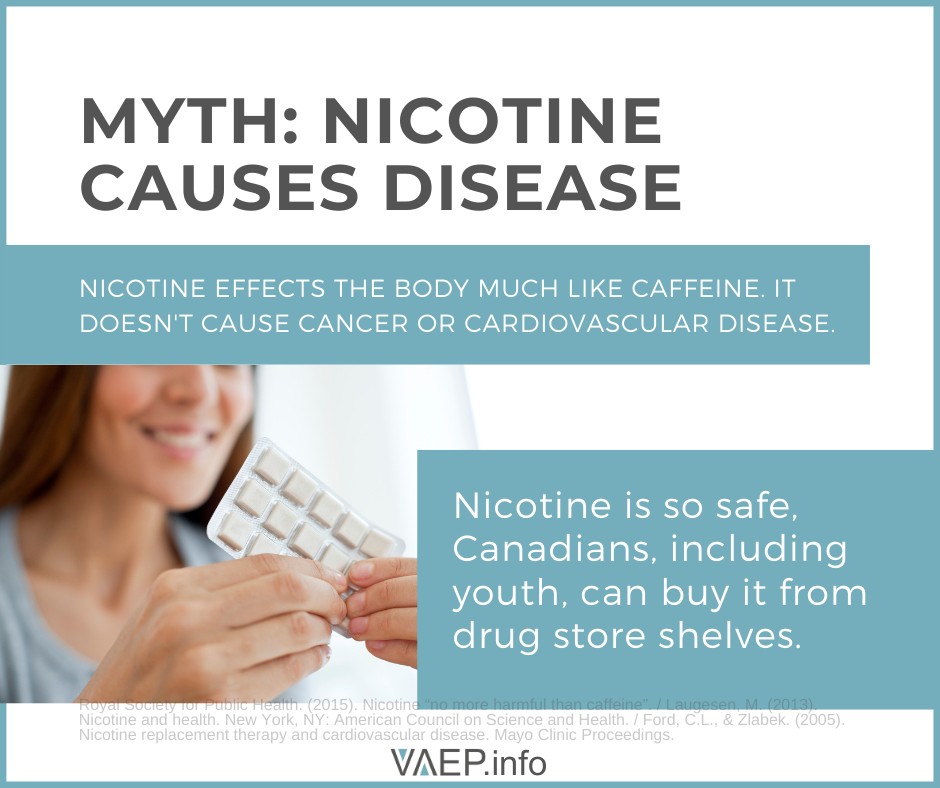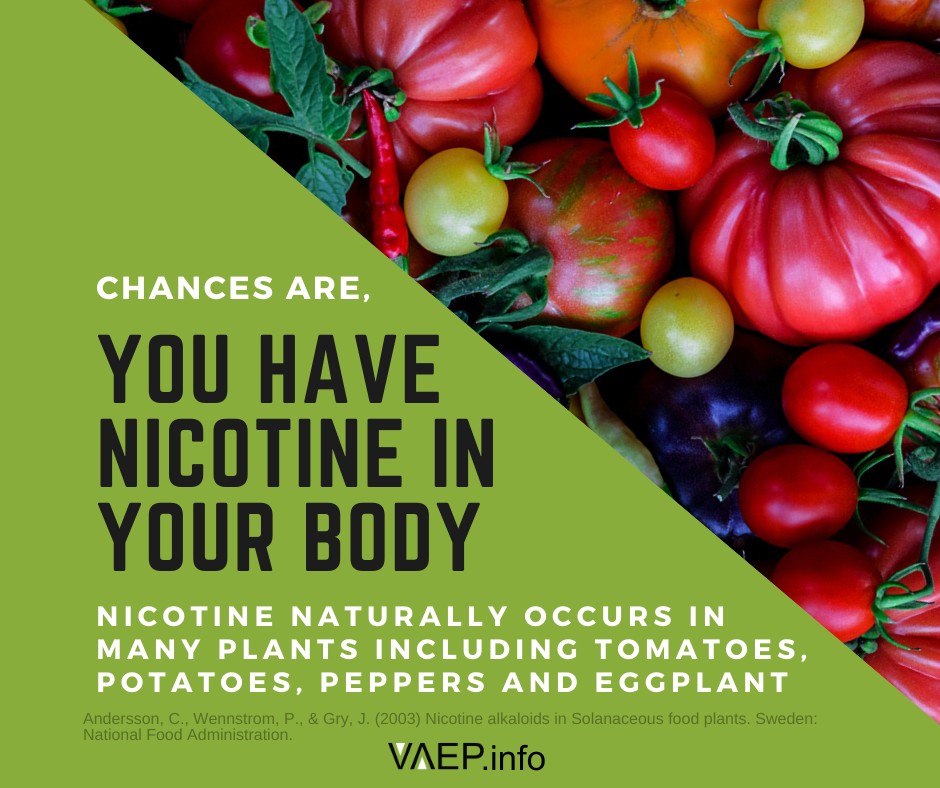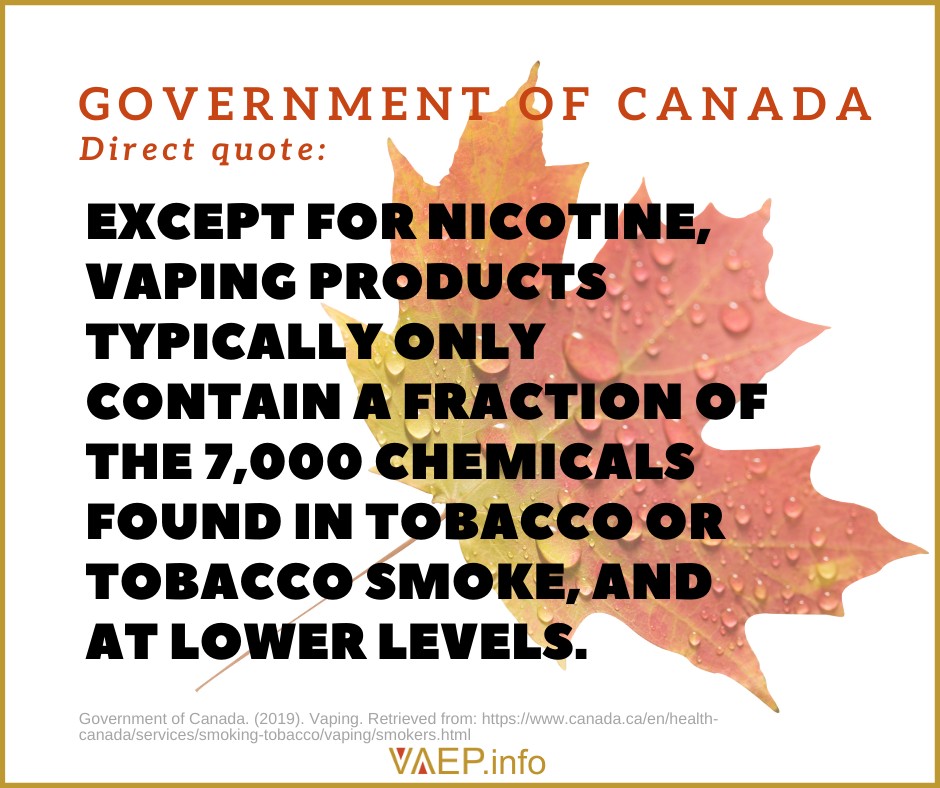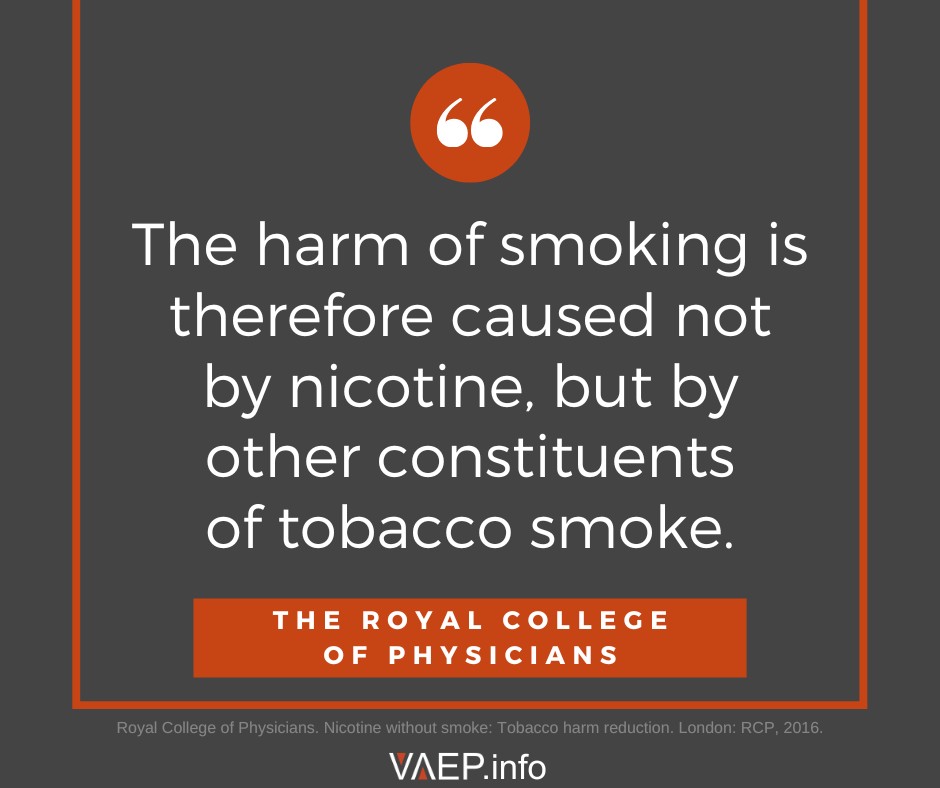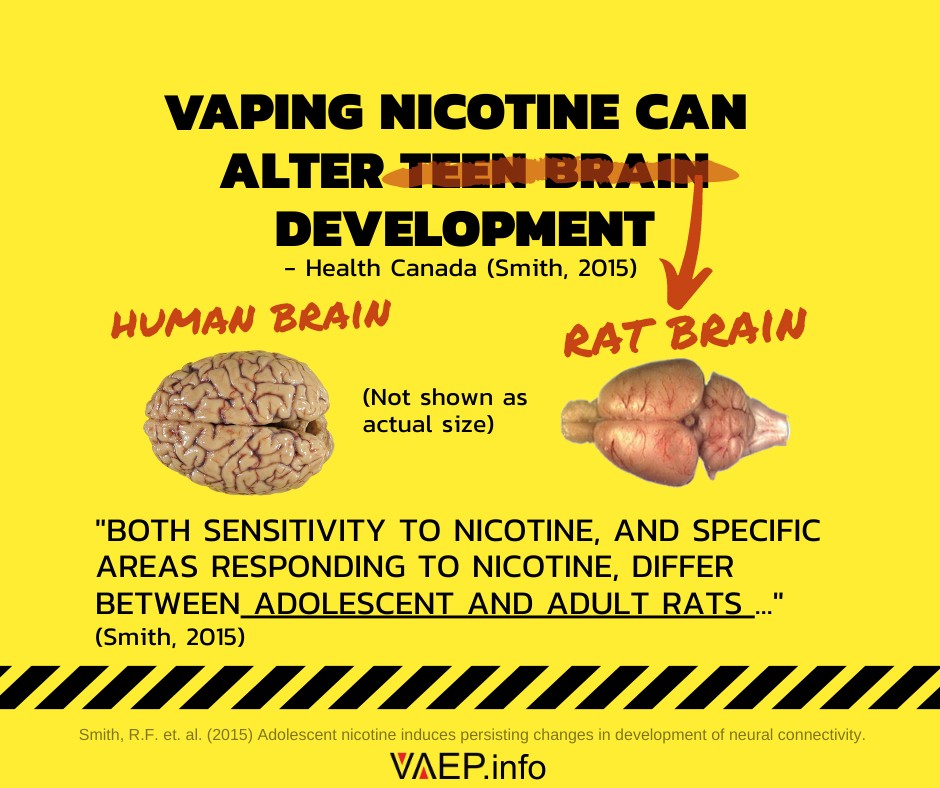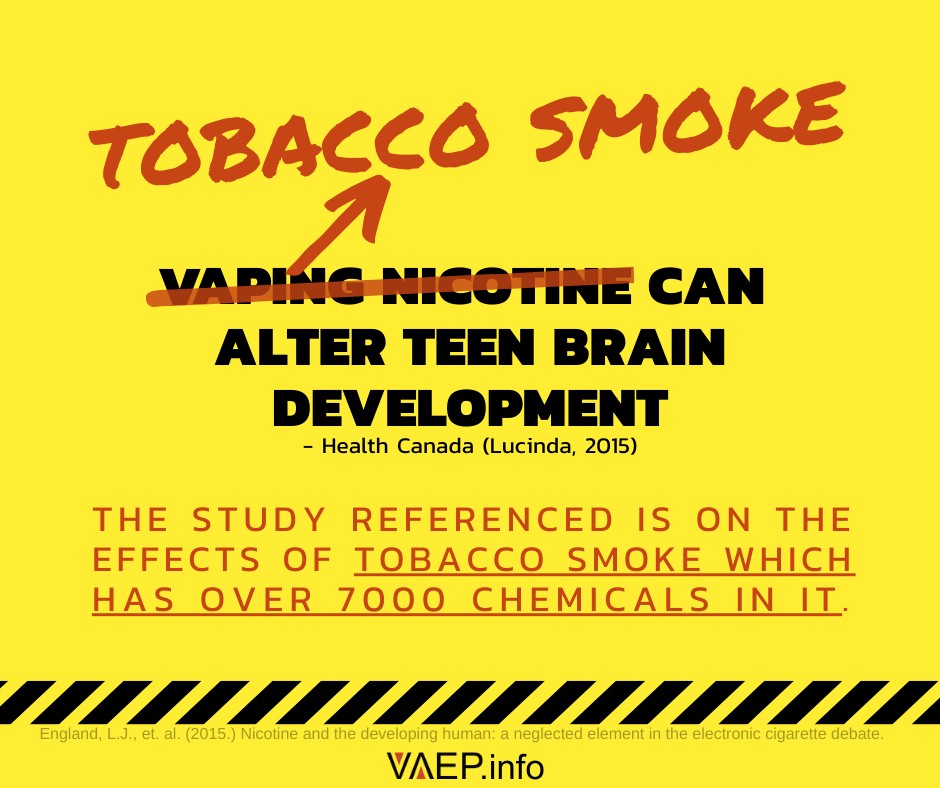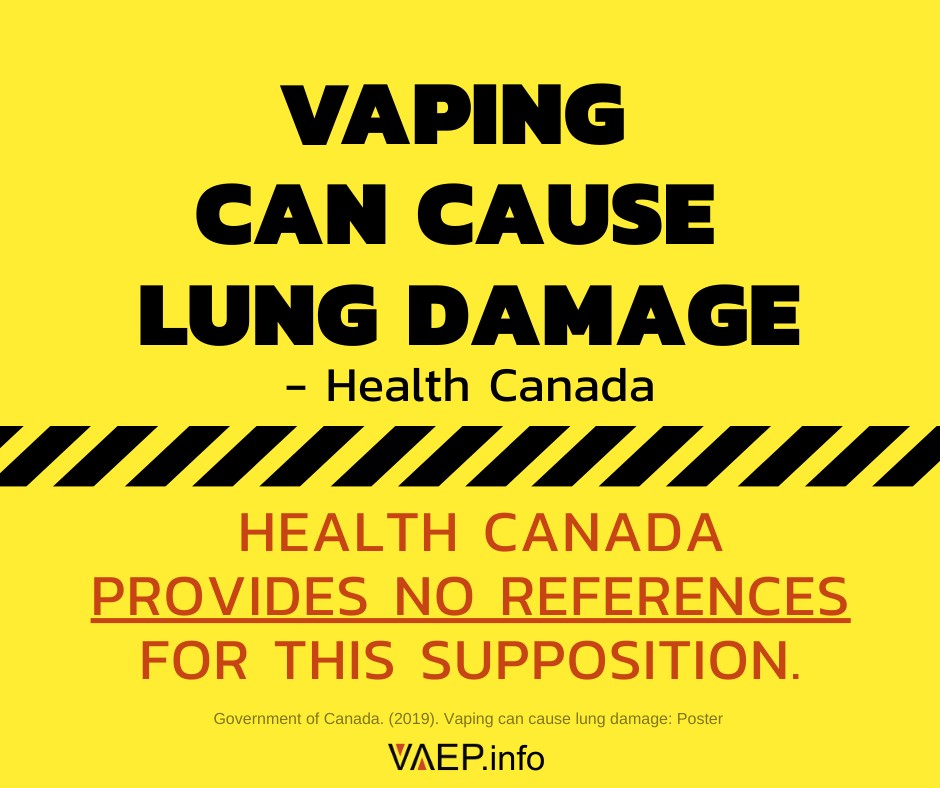Nicotine
A mild stimulant, much like caffeineVAEP Shareables are images utilizing graphics, colour and text to quickly teach people about vaping. Each Shareable provides the reference on the bottom.
Nicotine myth
Like any substance, too much can cause adverse effects. For instance 4000mg of Tylenol can cause severe liver damage.
Medications that are available on the shelves in a drug store are called over-the-counter (OTC) medications. They available without a prescription and used safely by the public.
More on nicotine
Nicotine treats neurological disorders
Nicotine is a mild stimulant and can form a dependance, much like caffeine. Nicotine in eliquid helps smokers transition to a source of nicotine that doesn’t kill them.
Nicotine is in your body
Nightshade plants naturally have nicotine in them to protect them from insects. So if you eat tomatoes, potatoes, peppers and eggplants, you have nicotine in your body.
Fraction of the harm
Vaping offers the smoker an alternative that allows them to continue inhaling nicotine without all the disease causing chemicals found in cigarette smoke.
Nicotine is not the problem
Dr. John Britton of the U.K. Center for Tobacco and Alcohol Studies explains that nicotine addiction isn’t a big deal because “…nicotine itself isn’t particularly hazardous.”
It’s not the nicotine which causes harm
Burning something causes toxins to form whether it is tobacco, or wood, or fabric. Vaping heats a liquid into a gasseous state like water into steam.
An extensive and facinating investigation
This documentary was motivated by the pervasive fear-provoking narratives on nicotine. It’s surprising what they discovered!
It’s not the nicotine which causes harm
Burning something causes toxins to form whether it is tobacco, or wood, or fabric. Vaping heats a liquid into a gasseous state like water into steam.
An extensive and facinating investigation
This documentary was motivated by the pervasive fear-provoking narratives on nicotine. It’s surprising what they discovered!
Nicotine and fear
Nicotine alters rat brains
It would be unethical to give nicotine to teens and then test their brains. In this referenced study used by Health Canada to scare smokers away from harm reduction, rats were given nicotine all day through an IV (2mg/kg/d).

